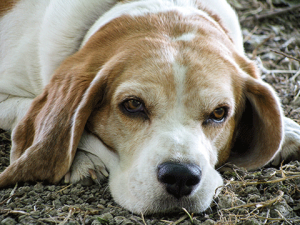Compared to human years, animals at around the age of 8 are generally classed as senior pets. As they reach more mature years, it is important to recognise changes that may take place. Regular checks are important and our Goddard Veterinary Nurses can help and advise you on the types of things you may see with your pets as they get older. 
So what type of things can you advise on?
Mobility
Just as in humans, when animals get older joint problems such as arthritis can develop, especially in cats and dogs. Have you noticed your pet being reluctant to move after a period of rest? Does your older cat seem uninterested in jumping up onto higher surfaces? These are things that are worth noting and mentioning during a senior pet health check.
With joint problems, movement can become harder for your pets and can start to affect their quality of life, by following advice from the nursing and vet team, there are ways to make movement that bit easier including:
- Limiting exercise to a more appropriate level
- Use of anti-inflammatory medication
- Maintaining an ideal weight for your pet
- Use of joint supplements
- Use of hydrotherapy centres
Diet and appetite
Our nurses can give you advice on nutrition and dietary requirements for your pets, regardless of their age. Older pets can have changes to their needs, for example you wouldn’t want to feed an 8-year-old dog puppy food.
Different foods contain varying nutritional values and calorific content and our nursing team can help you decide the best for your pet. For example, older pets are generally less active, so would possibly require calorie reduced diets, thus helping to control their weight. Some breeds also have foods specifically developed by pet food manufacturers and tailored to your pets needs – we can advise on these as well.
During the senior pet health check (or at any time) if you have noticed your pet is going off their food or treats, please let us know. There are several reasons this might be happening and should be investigated by our vets. A simple blood test can help determine the problem. Alternatively if your pet has massive appetite, this can also be a sign of diabetes or thyroid problems as well as others, so again please let us know!
Nails
Older pets tend to not wear their toenails down so quickly because they might exercise less. An active younger dog may run around lots on hard ground, naturally wearing down their toenails, whereas older dogs may be walked on softer ground for shorter distances.
Older cats may not use scratch posts as much (or the furniture!) to keep their claws short. Dew claws can cause a particular problem as they can curl around and dig into pads, causing soreness and even infection.
Our nurses can check nails and claws to make sure they are not getting too long, trimming them where necessary to keep your pets comfortable.
Coat
Coat changes can happen in senior pets and it’s not always just part of them getting older, Sometimes there is a reason behind it. For example matted fur can mean your pets are unable to groom themselves and this can be for reasons such as a sore mouth (which could mean dental treatment), or they simply cannot reach the area to groom, and this can be due to joint pain.
Our nurses are happy to look at any coat changes you are concerned about, referring back to the vets if necessary. Also the team can advise on a number of supplements, as well as shampoos to help improve the coat, especially if greasy or flaky.
These changes can be subtle or quite visible, so it is definitely worth speaking with our nursing team who can liaise with the vets, should your pet need further treatment.
